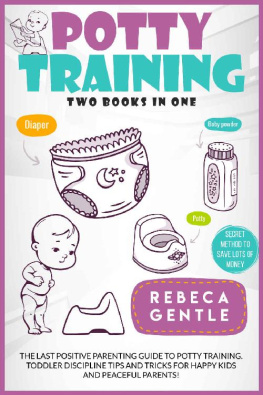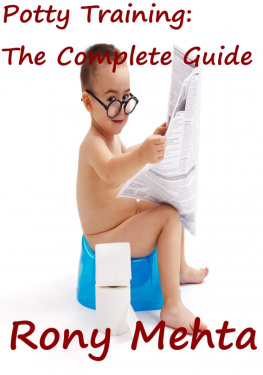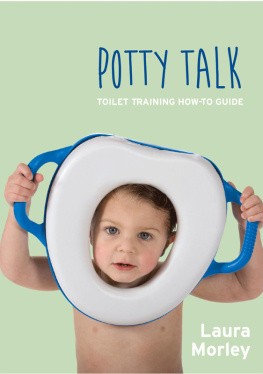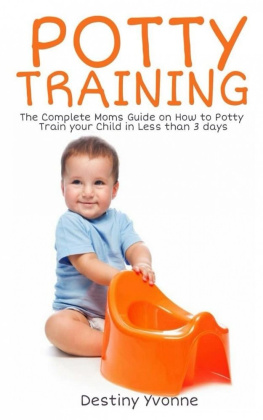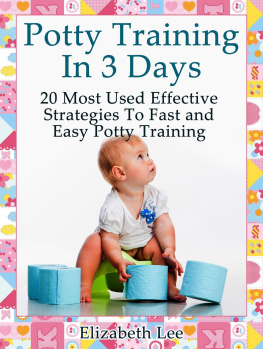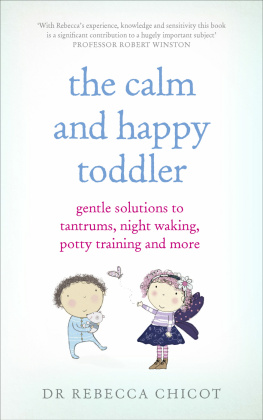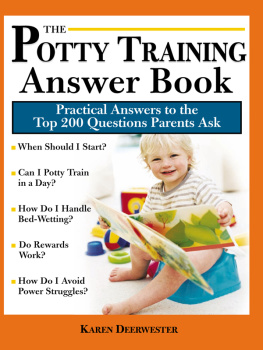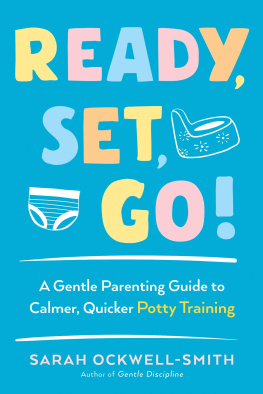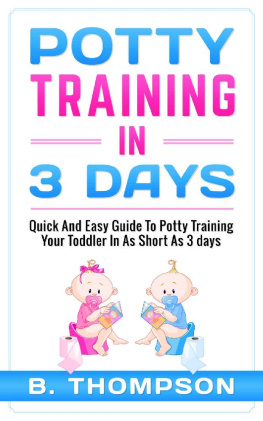Potty Training
The Last Positive Parenting Guide To Potty Training. Toddler Discipline Tips and Tricks for Happy Kids and Peaceful Parents!
Two Books in One.


Rebeca Gentle
Table of Contents
Copyright 2020 - All rights reserved.
The content contained within this book may not be reproduced, duplicated or transmitted without direct written permission from the author or the publisher.
Under no circumstances will any blame or legal responsibility be held against the publisher, or author, for any damages, reparation, or monetary loss due to the information contained within this book. Either directly or indirectly.
Legal Notice:
This book is copyright protected. This book is only for personal use. You cannot amend, distribute, sell, use, quote or paraphrase any part, or the content within this book, without the consent of the author or publisher.
Disclaimer Notice:
Please note the information contained within this document is for educational and entertainment purposes only. All effort has been executed to present accurate, up to date, and reliable, complete information. No warranties of any kind are declared or implied. Readers acknowledge that the author is not engaging in the rendering of legal, financial, medical or professional advice. The content within this book has been derived from various sources. Please consult a licensed professional before attempting any techniques outlined in this book.
By reading this document, the reader agrees that under no circumstances is the author responsible for any losses, direct or indirect, which are incurred as a result of the use of information contained within this document, including, but not limited to, errors, omissions, or inaccuracies.
Part One
Potty Training For Modern Parents

Chapter 1: BOOK ONE Introduction
Potty training is considered quite an ordeal for all mothers the world over. New moms and old alike dread the moment when their children reach a particular stage where using the toilet becomes unavoidable.
Before getting started with the process itself, there are a few things that need to be understood about potty training. It is best to learn the facts first and get everything clear before jumping right in headfirst.
What is Potty Training?
Potty training or toilet training is teaching children to use the toilet or bathroom. For a more formal definition, it is assisting the learning process of a child to control over the elimination of urine and stool. It involves the ability of the child to anticipate the need of passing urine or having a bowel movement and successfully doing their business on the toilet or a child potty.

Why is Potty Training Important?
Potty training allows a child to gain independence and is the start of self-mastery of his or her body. It helps to give a child a positive self-image and boosts up self-esteem even at a very young age.
Potty trained children are less likely to spread fecal-related disease in daycare or pre-school. Also, being potty trained significantly lowers down the risk of diaper-related problems such as diaper rash, skin allergies, and urinary tract infections.
Potty training is environmentally healthy. Children who can use the toilet are less likely to use both cloth and plastic diapers. The synthetic materials in plastic diapers may not decompose while washing cloth diapers need large amounts of water, soap, and electricity. Being potty-trained means less diapers to cause any environmental impact. It saves resources and energy while lessening the amount of garbage put out every day.
Potty-training is cost effective. There is less money spent on diapers, water and soap to wash them (for cloth diapers), and other related items: wet wipes, powder, petroleum jelly, lotions, creams, etc.
The Stages of Potty Training
Stage One: Your child is unaware of the problem that he or she needs to stop wearing a diaper. They do not recognize that they have to start using the potty or toilet. The goal of the parent at this stage is to let their child know or recognize this problem.
Stage Two: This is the stage where parents usually recognize the signs that their child is ready. In stage two, the child realizes that there is a problem but does not know what to do about it. It is a characteristic of this stage for the parents to start teaching their children behaviors in line with potty training.
Stage Three: Children have started to use the potty but still need help perfecting their skills.
Stage Four: This is the stage where children need little guidance from their parents. They are able to recognize the urge to use the potty and have the initiative to do it on their own.
Important Points to Remember:
For most children, bowel control comes before bladder control.
Potty accidents are when children are unable to use the potty or toilet properly or on time. They are very common and expected during the learning process.
Children do not develop the ability to hold in urine and stool until at least age twelve to eighteen months. The association of a toilet to the process can be learned earlier at an earlier age but they are still not considered as actually potty trained.
The average age for potty training has risen since the 1940s. The average age then that children were started on potty training was one and a half years old. A study in the United States conducted in the year 2001 showed that boys were potty trained at thirty-nine months while girls started at thirty-five months of age.
Chapter 2: How It Worked in The Past
Diaper material has long been a controlling factor in the area of potty-training. Getting kids out of diapers quickly was necessary when diapers were made from cloth or cotton wool. For a pioneer mother with unlimited heaps of clothing and wet diapers to dry (often without washing them), there was no discussion about when to begin potty training. It was best to teach toddlers to go in the chamber pot as early as possible. This occasionally prompted outrageous measures utilizing bowel purges and suppositories.
Washing machines helped ease mothers burdens in the 1950's. However, mothers still were using cloth diapers, so they were still attentive to their childs schedules and signals and would put them on the potty when the child was expected to go. The child would then make the association between his signals and being placed on the potty. It was normal for children to be potty trained by 18 months.
In the 1980s, disposable diapers became significantly more affordable. Parents could choose either cloth diapers or disposables. Soon, parents were no longer as overly energetic to potty train their toddlers at an early age.
This was around the time that pediatrician Dr. T. Brazelton Berry and the American Academy of Pediatrics upheld a potty-training approach which was a reaction to the fairly unforgiving schedules utilized in the previous century. Rather than rushing, parents were urged to wait until the child could convey his needs. Gradually, the focus moved from the parents needs to the child's needs.

